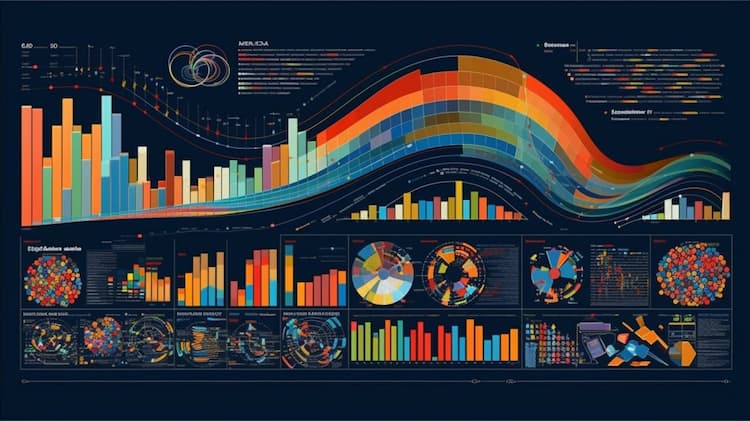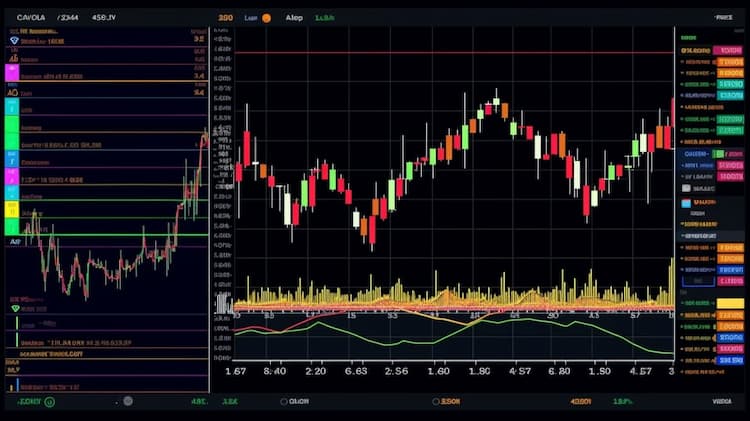
What are the best Biotechnology and Genomics ETFs ?
In the ever-evolving field of biotechnology and genomics, investors seeking exposure to this sector often turn to exchange-traded funds (ETFs) for diversification and potential growth opportunities. This article explores some of the top ETFs in biotechnology and genomics, offering investors a glimpse into the promising investment options available in these rapidly advancing fields.
Biotechnology and Genomics: Understanding the Sector
The biotechnology and genomics sector has been gaining significant attention in recent years due to its potential for groundbreaking advancements in healthcare and life sciences. Investors interested in gaining exposure to this promising industry often turn to exchange-traded funds (ETFs) that specialize in biotechnology and genomics stocks. These ETFs provide investors with a diversified portfolio of companies involved in research, development, and commercialization of innovative biotechnology and genomic products.
One notable ETF in this space is the ARK Genomic Revolution ETF (ARKG). ARKG aims to capture the potential long-term growth opportunities in companies focused on genomic sequencing, gene editing, therapeutics, and molecular diagnostics. The fund's portfolio includes a mix of established biotechnology companies and early-stage innovators, offering investors exposure to various segments of the biotechnology and genomics sector.
Comparing ARKG with similar ETFs, the iShares Genomics Immunology and Healthcare ETF (IDNA) is another option worth considering. IDNA seeks to track the investment results of an index composed of developed and emerging market companies in the genomics, immunology, and bioengineering sectors. Like ARKG, IDNA provides investors with exposure to companies involved in gene therapy, gene editing, and related areas within the biotechnology field.
 ARKG overlap What are the best Biotechnology and Genomics ETFs ?
ARKG overlap What are the best Biotechnology and Genomics ETFs ?
Biotechnology and Genomics: Factors to Consider
When evaluating biotechnology and genomics ETFs, several factors should be considered. First, it's essential to assess the fund's underlying holdings and their alignment with your investment goals and risk tolerance. Understanding the companies included in the ETF will help you gauge the fund's exposure to different subsectors and the potential for growth.
Additionally, expense ratios play a crucial role in ETF performance. Lower expense ratios are generally favorable for investors, as they reduce the drag on returns over time. It's important to compare expense ratios across different biotechnology and genomics ETFs to identify the most cost-effective options.
Furthermore, liquidity and trading volume are important considerations for ETF investors. Higher trading volume typically results in tighter bid-ask spreads, enhancing the ease of buying or selling shares. ETFs with lower trading volume may have wider spreads, potentially impacting the overall cost of investing.
Biotechnology and Genomics: Performance and Historical Returns
Analyzing the historical performance of biotechnology and genomics ETFs can provide insights into their potential for delivering returns. However, past performance is not indicative of future results. Investors should consider a longer-term perspective and evaluate the fund's performance relative to its benchmark index and peer group.
Over the past few years, both ARKG and IDNA have demonstrated strong performance, outperforming broader market indices. It's important to note that the biotechnology and genomics sector can be volatile, and investors should be prepared for potential fluctuations in returns.
Biotechnology and Genomics: Risk Factors
Investing in biotechnology and genomics ETFs comes with certain risk factors that should be carefully considered. The sector is subject to regulatory and clinical trial risks, as well as market volatility driven by technological advancements, regulatory changes, and competitive landscape shifts. Additionally, individual company performance within the ETFs can impact overall returns.
It's crucial for investors to conduct thorough research and due diligence before making any investment decisions. Consulting with a financial advisor or investment professional can provide valuable guidance tailored to your specific investment goals and risk tolerance.
Conclusion
In summary, the biotechnology and genomics sector offers exciting potential for investors seeking exposure to cutting-edge advancements in healthcare and life sciences. ETFs like ARKG and IDNA provide opportunities to gain diversified exposure to this sector. However, it's important to consider factors such as underlying holdings, expense ratios, liquidity, and historical performance when evaluating biotechnology and genomics ETFs.
Remember, investing in ETFs involves risks, and it's important to thoroughly research and consider your investment objectives before making any investment decisions. This article is for informational purposes only and does not provide any investment advisory services.
Disclaimer: This article is for informational purposes only and does not provide any investment advisory services.
https://ark-funds.com/ ARKG ETF issuer
https://ark-funds.com/funds/arkg/ ARKG ETF official page
FAQ
What is the iShares Nasdaq Biotechnology ETF (IBB)?
The iShares Nasdaq Biotechnology ETF (IBB) is an exchange-traded fund that aims to track the performance of the Nasdaq Biotechnology Index. It provides exposure to companies primarily involved in the biotechnology industry.
What is the ARK Genomic Revolution ETF (ARKG)?
The ARK Genomic Revolution ETF (ARKG) is an actively managed exchange-traded fund that focuses on companies involved in genomics, such as gene editing, therapeutics, molecular diagnostics, and bioinformatics.
What is the SPDR S&P Biotech ETF (XBI)?
The SPDR S&P Biotech ETF (XBI) is an exchange-traded fund that seeks to provide exposure to biotechnology companies in the S&P Total Market Index. It includes both large and small-cap stocks in the biotech sector.
What is the Invesco Dynamic Biotechnology & Genome ETF (PBE)?
The Invesco Dynamic Biotechnology & Genome ETF (PBE) is an exchange-traded fund that tracks the Dynamic Biotechnology & Genome Intellidex Index. It focuses on companies involved in biotechnology and genomic research.
What is the iShares Genomics Immunology and Healthcare ETF (IDNA)?
The iShares Genomics Immunology and Healthcare ETF (IDNA) is an exchange-traded fund that aims to provide exposure to companies involved in genomics, immunology, and healthcare innovation. It tracks the NYSE FactSet Global Genomics and Immuno Biopharma Index.







